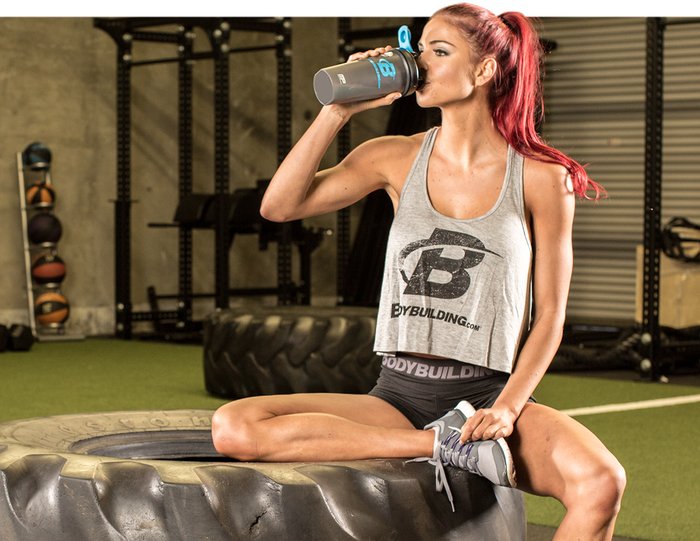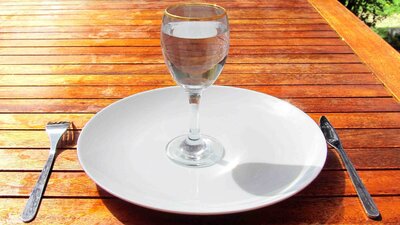The thought of eating only during a few hours of the day, or even every other day, may sound a little crazy, but intermittent fasting (IF) has been suggested as an effective weight-loss tool, with research supporting its ability to increase fat oxidation, reduce body weight, and accelerate fat loss.
Let's look at how supplements can improve your results.
Supplements for Intermittent Fasting
Using the best supplement strategy, you can achieve your fat-loss goals, optimize your gym performance, and thrive while on the IF diet!
To maximize your exercise performance, it may be best to train immediately prior to breaking your daily fast. This will allow the following supplements to help you optimize recovery and protein synthesis and replenish energy stores.
During the Day
Branched-Chain Amino Acids (BCAAs): Sipping on BCAAs during your feeding window may help increase protein synthesis when you're on an intermittent-fasting schedule. BCAAs will help balance out the protein breakdown that may occur from fasting.*
Pre-Workout
Caffeine: Not only does a little bit of caffeine before your workout help get you get fired up, but a dose of 1-3 milligrams per pound of body weight has been demonstrated to increase upper-body strength significantly!*
Epigallocatechin-3-Gallate (EGCG): Because one of the primary goals of IF is increased fat loss, one of your goals with supplementation should be to increase lipolysis (breakdown of stored fat) and fatty acid oxidation (use of fatty acids for energy).
EGCG, when combined with caffeine, has been shown to lead to significant increases in fatty acid oxidation and metabolic rate.*
This combination may work synergistically to encourage fat loss while minimizing any decreases in metabolic rate observed during periods of prolonged fasting. Dosing of EGCG should be approximately 150 milligrams per day to increase lipolysis. However, it may be easier to ingest 500-1,000 milligrams of green tea extract containing at least 30 percent EGCG.

Beta-Alanine: Beta-alanine supplementation increases work capacity by decreasing fatigue associated with the buildup of metabolites (e.g., hydrogen ions). This supplement works by increasing the carnosine, an intracellular buffer, stored in the body.*
The carnosine buffer reduces acidity in the blood, allowing for improved high-intensity exercise performance. The effective dose for beta-alanine is 3.2-6.4 grams per day.*
To avoid flushing or tingling of the skin, try splitting the daily dosage into 2-3 smaller servings.
Essential Amino Acids and Carbohydrates: Research has demonstrated that consuming 6 grams of essential amino acids (EAAs), plus 35 grams of sucrose, immediately prior to resistance exercise significantly increases protein synthesis due to an increased influx of EAAs to the active muscle.*
In other words, slam about 100 grams of dried dates and some EAAs right before hitting the iron to maximize your muscle gains.
During Your Workout
BCAAs: While there is limited research evaluating the use of BCAAs during resistance training, they seem to work in two ways: helping to avoid decreases in protein breakdown, which enhances recovery, and decreasing central fatigue by lowering the ratio of free tryptophan-to-BCAAs present in the blood.*
*Sipping on branched-chain aminos during your workout may help avoid breakdown in muscle protein. Look for a 2:1:1 ratio of leucine:isoleucine:valine. View More**
It is best to have at least 7 grams of BCAAs with 3.5 grams leucine, 1.75 grams isoleucine and 1.75 grams valine in a 2:1:1 ratio.
Post-Workout
Protein: Protein consumption following a bout of resistance training may lead to increased protein synthesis. Increases in protein synthesis of up to 400 percent have been observed when subjects took 6 grams of EAAs combined with 35 grams of carbohydrates.*
Additionally, 15 grams of whey protein consumed immediately prior to, then immediately following, weight training has led to significant increases in protein synthesis.
I recommend using 20-25 grams of a fast-digesting protein like whey immediately post-workout to jump-start the anabolic process.
Carbohydrates: Ingesting 0.5 grams per pound of body weight of carbohydrates, independent of protein, after resistance exercise has led to decreases in muscle-protein catabolism, with small increases in protein synthesis. Consuming carbs after a fasted workout will also help restore glycogen.*
If you opt for a post-workout shake, try to find one that contains dextrose, as it has been shown to restore glycogen at a faster rate than maltodextrin. If you prefer to snack on actual foods, stick with moderate- to high-glycemic-index foods, such as pretzels, white rice, bananas, and potatoes.
Creatine: Creatine supplementation of 3-5 grams per day leads to significant increases in lean body mass, power output, strength, and muscle-fiber size. A recent study found that adding creatine to your post-workout supplements may be superior to taking it pre-workout for body composition and strength gains.*
*These statements have not been evaluated by the Food and Drug Administration. This product is not intended to diagnose, treat, cure, or prevent any disease.

